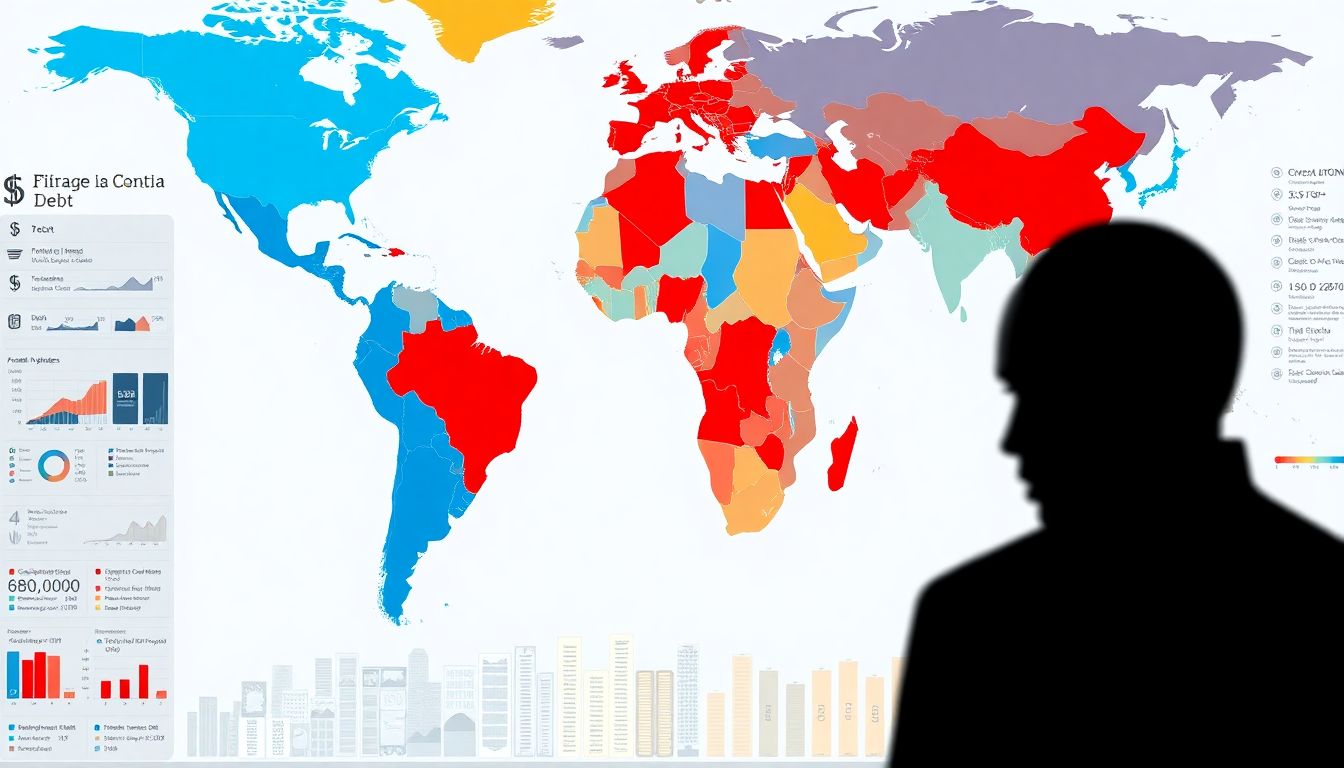
Breaking Down the Numbers: The Soaring Debt Burden on African Nations
Africa is facing a significant economic challenge as its debt burden reaches alarming heights. Recent figures show that many African nations now struggle under a mountain of debt, with some reporting debt-to-GDP ratios that are worrying. The ongoing economic situation leaves these countries vulnerable to shocks from outside their borders. A recent report by a UN economist highlights the urgent need to address this growing crisis.
The UN Report's Key Findings
The UN economist's report reveals stark realities about the state of African debt:
- Many nations are experiencing a rapid increase in debt payments, squeezing their budgets.
- Certain countries, like Zambia and Mozambique, have debt-to-GDP ratios exceeding 100%. This means their debt surpasses their entire annual economic output.
- Key indicators show a trend toward unsustainable debt levels, increasing the risk of default.
The report serves as a wake-up call for policymakers, urging them to examine the numbers and take action.
Causes of the Debt Crisis
Multiple factors contribute to the debt crisis in Africa:
External Factors
- Global Inflation: Rising prices on goods and services increase costs for governments.
- Rising Interest Rates: Higher borrowing costs affect how nations manage their loans.
- War in Ukraine: The conflict disrupts supply chains and raises food and fuel prices.
Internal Factors
- Inefficient Public Spending: Many governments do not use funds effectively.
- Corruption: Mismanagement of resources drains public funds.
- Lack of Economic Diversification: Over-reliance on a few sectors makes economies fragile.
Case Study: Zambia has faced a severe debt crisis in recent years, marked by rising debt levels and economic instability.
The Impact on African Economies
The consequences of soaring debt are significant:
- Reduced Government Spending: As debt payments increase, funds for crucial services like healthcare and education decrease.
- Increased Poverty and Inequality: Programs meant to help citizens suffer cuts, worsening living conditions.
- Stifled Economic Growth: Investment in development projects declines, hampering future prosperity.
Strategies for Debt Relief and Sustainable Development
Addressing the crisis requires a multi-faceted approach:
- Debt Restructuring: Countries can renegotiate terms with creditors to ease the financial burden.
- Increased International Assistance: More support from global partners can help stabilize economies.
- Economic Diversification: Promoting varied industries can reduce reliance on a single economic sector.
The Role of International Organizations
International bodies play a crucial role in tackling Africa's debt crisis:
- IMF and World Bank: These organizations provide financial assistance and debt relief programs to help stabilize economies.
- UN Advocacy: The UN pushes for solutions which promote manageable debt levels and sustainable economic practices.
- Collaborative Efforts: Joint initiatives among various organizations can create effective strategies for tackling debt issues.
Conclusion
The UN economist's report emphasizes the urgent need to address Africa's soaring debt. Coordinated action from governments, international organizations, and civil society is essential to tackle this crisis. Failure to act could lead to dire consequences, including deeper poverty and stalled economic growth. The future of many African nations hangs in the balance, and proactive measures are required to change the current trajectory.


